The modern matriarchy of Laweyan's Mbok Mase
The spirit of the Mbok Mase, the women who drove the Laweyen batik industry in the 16th century, lives on today in the women entrepreneurs of Surakarta.
Change Size
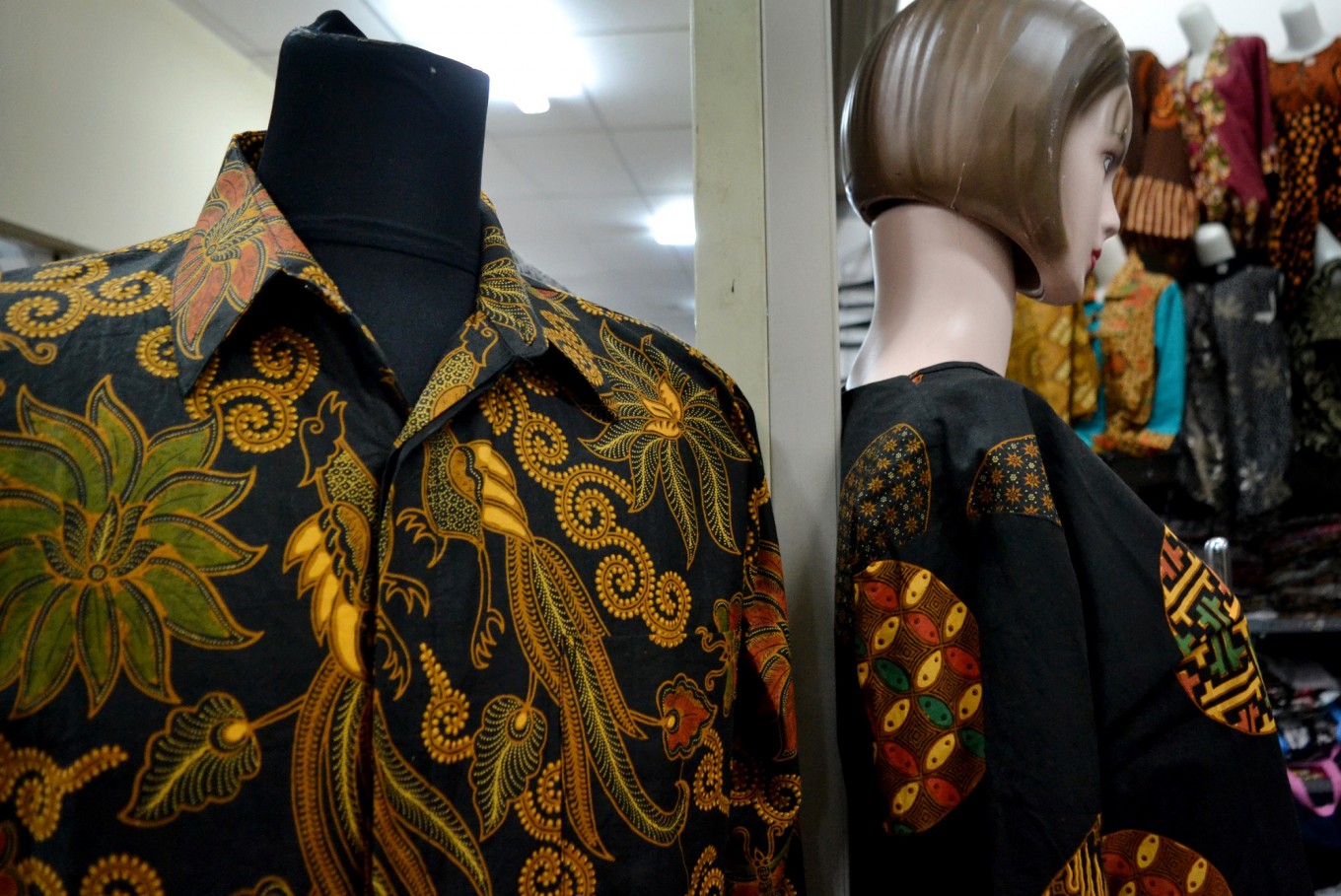 Classic 'sogan' batik from Omah Pepak boutique, owned by Nety Hanafi. (JP/Stefanus Ajie)
Classic 'sogan' batik from Omah Pepak boutique, owned by Nety Hanafi. (JP/Stefanus Ajie)
T
he story of Mbok Mase began in Laweyan, Surakarta, Central Java, in the early 16th century. Situated not far from the Jenes River, which merges with the Bengawan Solo River, the longest river in Java, Laweyan was first a trading center for lawe (thread used in tenun lurik, Javanese woven cloth), before flourishing into a renowned center of batik production.
Laweyan’s growth was accompanied by an economic boom, steered by local women called Mbok Mase.
Their husbands were called Mas Nganten, and were given smaller roles in their businesses.
Mbok Mase wielded the most power of Laweyan’s batik industry, by having the final say on batik patterns, determining prices as well as managing sales and finance. They pioneered a successful change toward batik industrialization in the early 20th century, when they shifted to batik cap (stamped batik) from batik tulis (hand-drawn batik)
Read also: Nine Surakarta kampung ready to host tourists
It was interesting to note that the women of the Surakartan royal family were deemed to be lesser than men. Yet it was the Mbok Mase, the everyday women, and not men, who held control over their businesses. Moreover, their husbands were restrained from living lavish or polygamous lives, as opposed to the customs of royal men at the time.
That spirit has been passed down through the generations, with today's Surakartan women following the example set by the Mbok Mase.
In the small alleys of Laweyan, still a popular batik center in Surakarta, the spirit of the Mbok Mase is palpable in Anik Ermawati, who has run Batik Nagari since 2008.
With two batik workshops in Premulung and Waringinrejo villages, Anik produces batik tulis, batik cap and printed batik. She supplies several batik sellers in Surakarta and Yogyakarta.
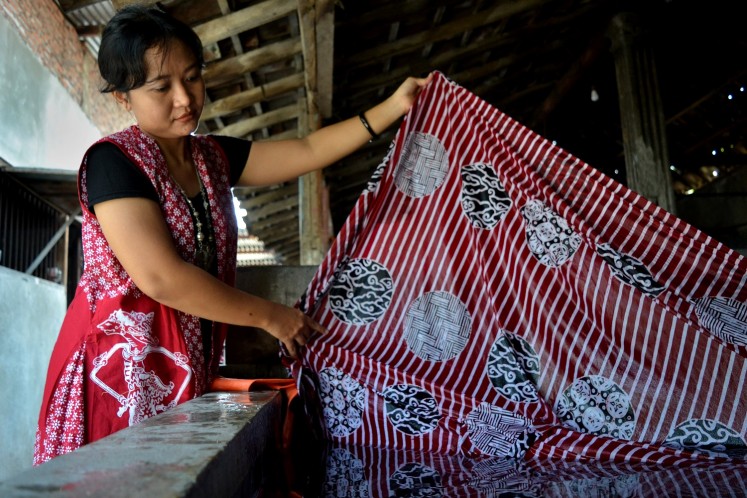
“To come up with my own designs, I face the challenge of keeping up with trends or setting new ones. However, sometimes there are copycats of my patterns, produced with cheaper materials,” Anik said.
She knows that innovation and learning are necessary to stay in the business. As a mother and entrepreneur, time management is also crucial.
“At times, when I’m really tired of dealing with the business, I take my family out for an impromptu picnic. Surprisingly, I get fresh ideas for advancing my business on the picnics,” she said.
Surakarta has three main batik markets in the Gladag area, selling products from Laweyan, Kauman and Sragen.
Nety Hanafi, who has been selling batik in Gladag’s Beteng Trade Center since 2010, has found that selling online is just as profitable.
With experience as a public relations officer in a Surakarta mall, Nety knows the significance of online promotion. With her device in hand, she manages over 1,000 resellers of the trademark sogan (deep brown) batik of her Batik Omah Pepak boutique.
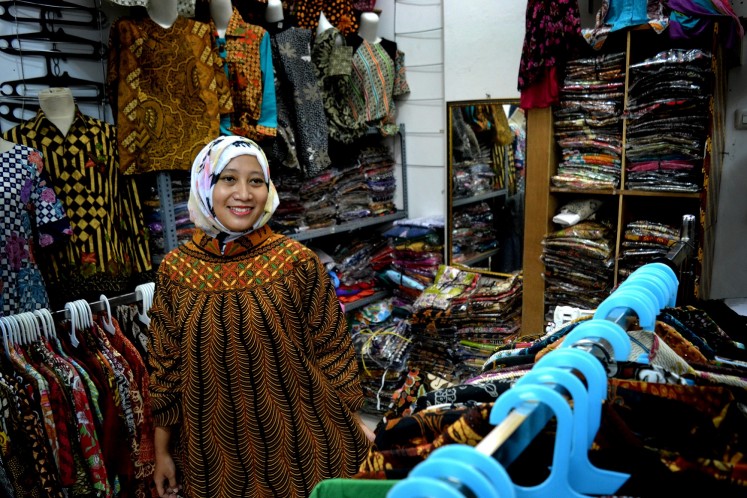
Nety said she preferred being an entrepreneur to working in an office. “However, I need to be very disciplined, and the work is continuous. My working hours are 24 hours,” she added.
“But I have become more skilled in finance, and I know how to promote and negotiate. Everyday I learn something new,” she said. She is determined to shatter the old Javanese saying of “konco wingking” (women belong in the kitchen).
Read also: Three ways to identify quality batik
The determination to be an entrepreneur is also held by Angela Merici Audri Titik Pujianti, a seller who owns several kiosks in Surakarta’s Wholesale Center (PGS).
Previously an employee at a batik workshop in Surakarta, in 2011 she opened her own business. In addition to selling batik and T-shirts at her three kiosks in PGS, Angel also runs a batik workshop for wholesale purposes.
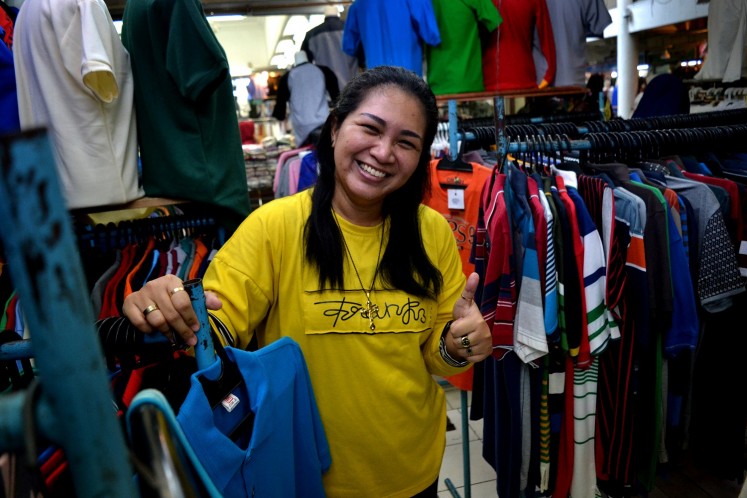
“My daily tasks are more focused toward the workshop’s production, as my employees take care of the kiosks. Other than that, I look after my husband and children,” she said.
She admitted that being a wife and mother as well as an entrepreneur was hard work, yet she still finds it enjoyable. “Having a business is a learning process. Every up and down has shaped me into a stronger and more confident woman,” she said.
Meutika Azizah, the owner of handbag label Pitoe Bags, agreed that making time for both her business and household work was hard yet enjoyable.
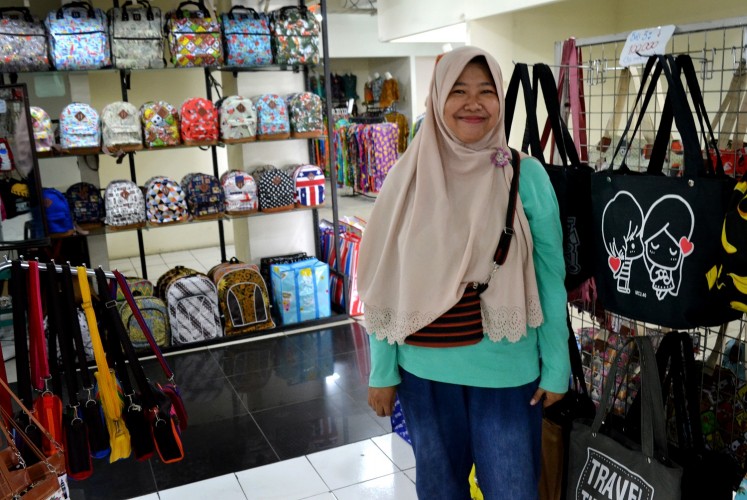
“I can spend more time at home to take care of all my responsibilities,” she said. “I can also expand my knowledge through books and meeting people.”
A love of fabric has brought Elly Kuel many meaningful moments. After deciding to take her passion seriously in 2012, Elly has become the coordinator of Soloraya Fabric Club, a space for women who are passionate about fabric-based handicrafts.
In her simple backyard workshop, Elly sews together pieces of fabric for her label, Lucu Look.
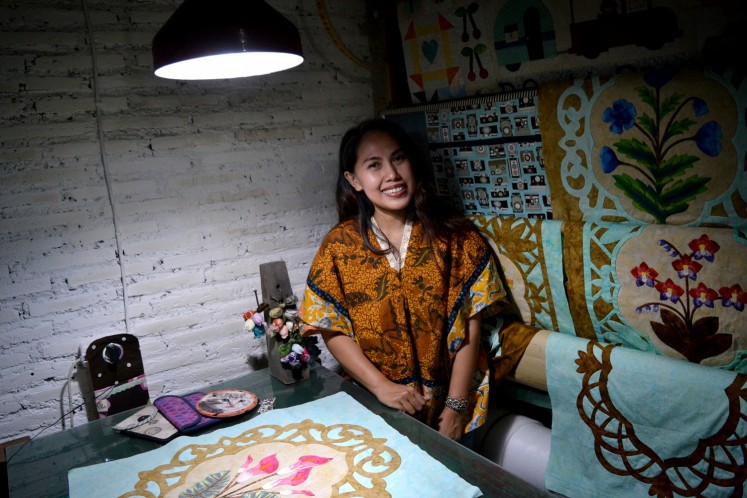
“I used to make patch works by order. But starting this year, I pushed myself to start following my own ideas,” she said.
Read also: Batik 'tulis' may provide attractive investment option
For her, it was crucial for a woman to be able to be herself in addition to her other roles, such as taking care of the household.
“It brings fresh energy to the family’s life,” she said. “In the end, from everything I create here, my family can also reap the benefits. That’s the most important part of my creations.”
Today's Mbok Mase may live in a different era from those of the past, but the spirit of independence and entrepreneurship has lived on. These women pursue their own visions for their lives, banishing social pressures and stereotypes along the way. (wng)









